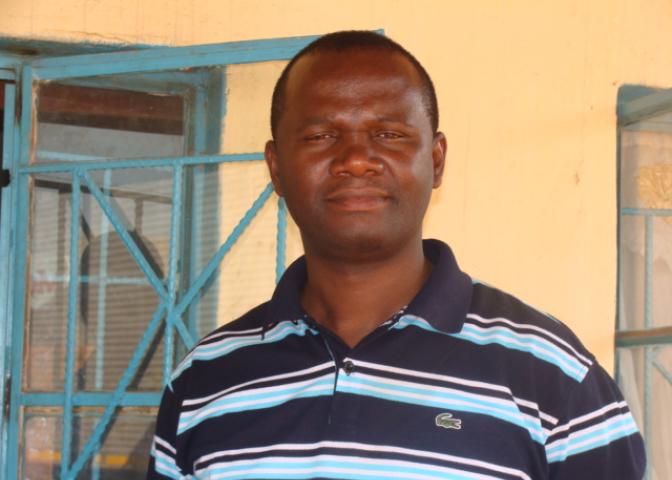Victor Makasa
(Zambia)
MA in Rural Development, University College Dublin (2002)
Zambian Victor Makasa attended the 2001-02 Masters in Rural Development programme at UCD, supported by Irish Aid. We asked him to reflect on his studies, a decade back in the field and memories of Ireland.

What was your work role before you came to Ireland?
I was with the Ministry of Agriculture as an extension methodogist, working with farmers, giving advice, developing both agricultural and fisheries packages. I worked in Mumbwa District with people on the ground and was in charge of all the field staff in various blocks and camps, helping them in all the extension issues, in crops and livestock as well as fisheries.
Tell us about your studies and how they helped...
Studying Rural Development at UCD suited very well the work I was doing back home advising rural small-scale farmers. I did a course in research methods and also in communications which has been very important in terms of how I relate with the farmers so that I have an effect on them. At the time, issues of ‘participatory extension’ were key - in other words, providing advisory services that emphasised farmers’ participation. There was a paradigm shift away from the older method of ‘Training and Visit’ that the World Bank had propagated. So the course in Ireland sharpened my skills in how I worked with the extension workers in the field and the farmers. Issues of food security and nutritional security were also central – as they still are. On returning to my role with the Ministry in 2002, I was able to conduct workshops for staff in the district and so transferred the knowledge to my juniors.
How has your career progressed since then?
2004 co-incided with the coming of the Agricultural Support Programme (ASP) funded by the Swedish International Development Agency. This was implemented through the Ministry but with a separate management unit and I was asked to join because of my experience in terms of building capacity and helping to transfer the knowledge to the farmers. I was given an area in central Zambia as Team Leader and worked supporting interventions aimed at helping improve food and nutritional security as well as income amongst farmers. The aim was to transform the way agriculture was done, from the traditional point of view toward small-scale farming as a business, with farmers as entrepreneurs. Evaluations proved it had been very successful when it came to an end in 2008.
And then your work took you on to the national level?
Yes. I was called by Natural Resources International of the UK to help set up a programme in Zambia called Research Into Use (RIU), which was aimed at ‘scaling up’ use of innovative technologies and approaches among small scale farmers. So much research is done both by national and international research institutions but it just gathers dust on the shelves – so RIU was looking at how can we improve the uptake amongst the end-users so that it contributes to poverty reduction. I was Country Co-ordinator for Zambia. We went up to last year in July and, although we started later than in other countries, we were able to make some good impacts.
At policy level, this work meant that I was invited to go and support the ‘Extension Harmonisation’ process going on nationally with the Ministry because of the experience that we had as a programme in rolling out district innovation platforms that bring together various extension service providers – public, private and NGOs or civil society driven extension services.
What’s your focus right now?
This year, I was appointed Programme Manager for the United States African Development Foundation support to Zambia. It is implemented through the Zambia Agribusiness Technical Assistance Centre (ZATAC) and we assist marginalised and rural groups with business and finance capacity to develop successful and sustainable enterprises and improve their standard of living. Currently we’re supporting 33 projects across the country, including the rice sub-sector, small-scale dairy, oil seeds, fisheries and pineapples.
I‘ve also felt a need to work in developing human resources that are required within the country, so in 2011 I lectured part-time at Mulungushi University in Agricultural Development Economics.
Tell us a little about your hopes for the future...
My passion still lies in helping the rural poor and I would like to support the agricultural sector to a level where it realises its commercial potential. The potential is so high and I would like to be a part of the transformation of agriculture so that it improves its contribution to the Gross Domestic Product.
Finally, what are your strongest memories of Ireland?
Thinking back, I remember Dublin city. I remember St Patrick’s day. I loved the weather – I got used to it. When I came it was very cold and chilly but after I stayed there for a while I got to like it. Each time I communicate with people there I remember the many good things. The people were very nice, very welcoming. When I returned here people were saying you sound Irish because I kept using Irish terms!
I hope one day I can come back – maybe to do my PhD.